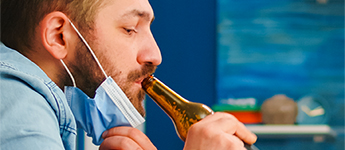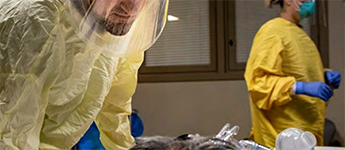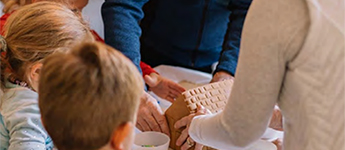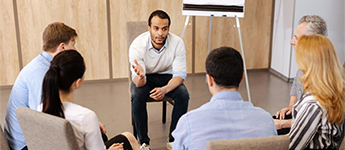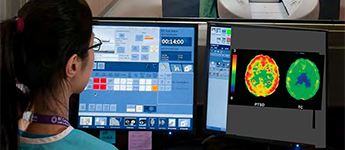Webinars on Demand
Our webinars feature thought leaders in addiction and behavioral health. Learn about emerging research, best practices, and topics related to using the 5-Actions Program™. Each webinar includes the presentation's slide deck and related resources.
- WATCHThis webinar shares information to support our understanding of sexual trauma, how it impacts us emotionally, physically and spiritually, and offers relationship and humanity based approaches to healing.May 22, 2024
- WATCHThis webinar explores the nature of addiction and what is known about the most effective pathways to healing. We’ll look at risk factors and discuss how most struggle with multiple addictions and why it’s important to address them all as a package of behavior.April 24, 2024
- WATCHIn this webinar, we dive into hypernormalization and its relationship to addiction. We discuss how the term applies today, and how addiction becomes an adaptive way of addressing the world’s horrors when solutions seem out of reach.December 13, 2023
- WATCHFew parenting challenges today rival how best to navigate risks associated with use of technology in teens. Join us for an engaging webinar where we’ll discuss the benefits and risks of technology, as well as offer guidance for keeping children safe online.November 15, 2023
- WATCHNavigating the mental health and addiction treatment system can be challenging for someone who knows it, but it’s even more difficult for the everyday person. Seasoned clinician, Brian Serna, walks us through NM’s behavioral health system.May 31, 2023
- WATCHThe key to overcoming addiction is engaging in healthy, supportive relationships that are more rewarding and powerful than substances and addictive behaviors. Learn the value of peer recovery support and services available in New Mexico and how to access them.April 19, 2023
- WATCHFentanyl is now the primary drug responsible for overdose deaths. Despite significant efforts to curb this public health crisis, fentanyl remains a significant threat to our communities. This webinar offers insight to understand and address the opioid epidemic.March 22, 2023
- WATCHWhile the pandemic has become more manageable and masks have largely come off, many are still struggling with our new reality of life. We’ll tackle burnout, discuss leverage points for healing, and offer a roadmap to help you navigate your best life.December 17, 2022
- WATCHIn his book, Five Things to Know Before You Get Sober, Nico Morales offers those contemplating recovery insights from his own experiences getting sober. His motivational lessons can help you or a loved one embark on a healing path to recovery.November 19, 2022
- WATCHFor more than half a century, Dr. Alexander has studied addiction and proposed some of the most thought-provoking insights in the field. Hear directly from him to explore his ideas, including the notion that addiction may be among the most existential threats to our future.October 22, 2022
- WATCHTechnology has found its way into almost every aspect of our lives. Seeing the degree to which our relationship with technology is unhealthy isn’t so easy. Learn why addressing technology addiction is not so different from other addictions and get guidance on how to address overconsumption.September 17, 2022
- WATCHGrounded in decades of Kimberly Carson’s studies and teachings, this webinar offers a foundation to explore your True Self. If you are drawn to begin or deepen your meditation practice, you’ll find your time with Kimberly surprisingly nourishing.August 27, 2022
- WATCHA good life is built around nurturing relationships, and emotional attunement is necessary for healthy relationships. Learn how to grow up emotionally, self-regulate difficult feelings, and negotiate the difficult but rewarding terrain of relationships.July 16, 2022
- WATCHGet a guided tour of what's new, including search functionality, a personalized roadmap tool, and over 30 new videos. Learn what makes the program unique and why using the free phone support enhances outcomes.June 24, 2022
- WATCHNational suicide rates have increased 30% in the past two decades, with ages 10-14 and 25-35 showing the highest rates. Guest expert Dr. Raymond P. Tucker discusses the evidence base for using CAMS and reviews the latest leverage points for treatment.May 28, 2022
- WATCHRecent data suggests the pandemic is responsible for at least a 20% increase in excessive drinking. This webinar reviews treatments that optimize positive outcomes and key ingredients in overcoming AUD.April 23, 2022
- WATCHDominique Simon-Levine and Laurie MacDougall from Allies in Recovery discuss CRAFT (Community Reinforcement and Family Training) and why it has the highest success rate of any approach for helping loved ones struggling with addiction.February 26, 2022
- WATCHLearn factors driving pandemic fatigue, grief and excessive worry, and how COVID has led to continuous traumatic stress (CTS). We’ll take on this challenging time with evidence-based tools to enhance resiliency and empower your own health and wellbeing.January 22, 2022
- WATCHWe are conditioned to believe we have one mind and one personality, but this idea does not reveal the complete picture. Our mind is better understood as an internal family of parts, and addiction is behavior of one part, not the essence of our being.December 18, 2021
- WATCHAddiction is a symptom that emerges from various roots that need to be identified for long-term success. Learn the process of evaluating your life to uncover leverage points for change, how to access screening tools, and when to seek a professional evaluation.July 24, 2021
- WATCHWhether you are a clinician, social worker or work in some other capacity that interfaces with people who experience addiction, you’ll learn indications for use of the NM 5-Actions Program and ideas for integrating it into patients’ treatment plans.June 12, 2021
- WATCHA common pitfall of most treatment programs is they miss opportunities to use your life to create. We’ll explore why engaging in creative endeavors is one of the best relapse prevention methods and how you can use creativity to become the best version of yourself.June 12, 2021
- WATCHTrauma is among the most common and least understood drivers of addictive behavior. Learn the nature of trauma, its relationship to addiction, and how you can use the 5-Actions Program in clinical work to enhance outcomes from treatment.June 5, 2021
- WATCHUnresolved and unaddressed trauma can undermine your recovery and treatment efforts. Learn how to define trauma and its relationship to addiction, the consequences of it, and how to address the trauma in your life to support your change efforts.May 22, 2021
- WATCHWhat role do relationships play in life, healing and overcoming addiction? We’ll explore these topics, as well as attachment theory, the earliest template for building relationships. Learn how adverse childhood experiences impede a good life and more.April 17, 2021
- WATCHSince COVID we have collectively lost so much, and risk losing more if we fail to recognize the coming challenges of unresolved grief. Learn about grief and its relationship to addiction and how to address it without becoming overwhelmed.March 20, 2021
- WATCHAccess powerful learning and behavior change tools to overcome addiction or help a loved one struggling with addiction. Learn how the online self-guided NM 5-Actions Program™ enhances recovery and resiliency.January 31, 2021















